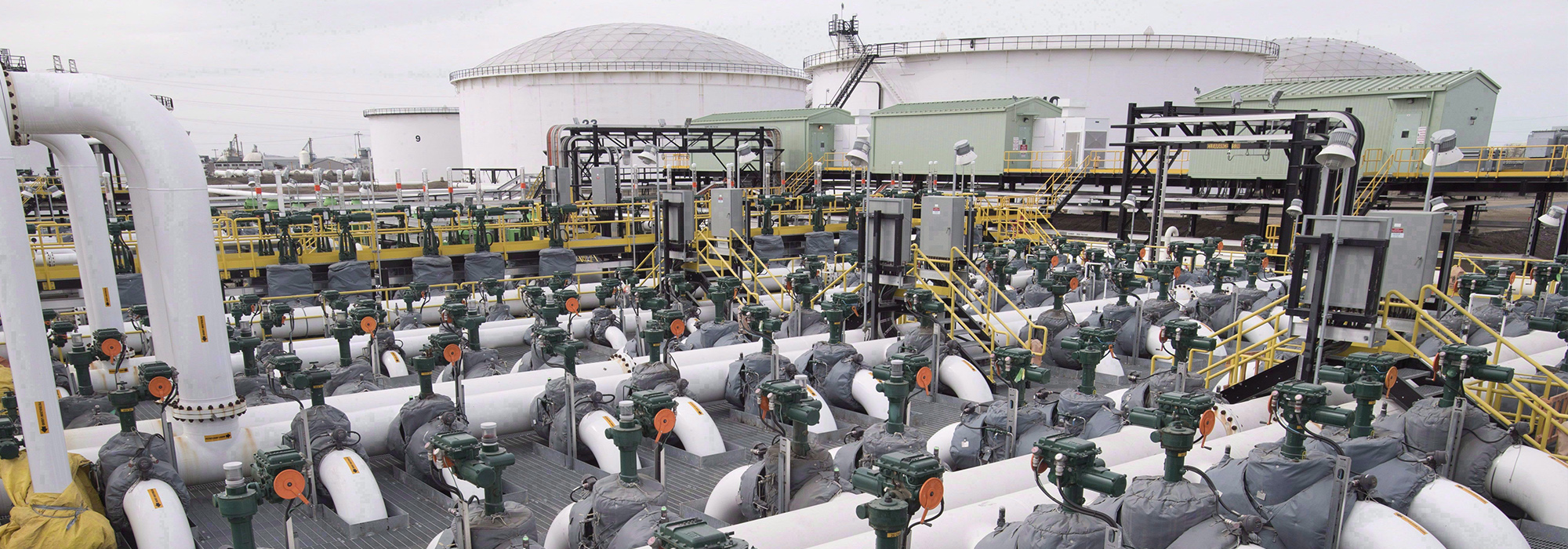
Kinder Morgan’s April 8 ultimatum to Canada — clear a direct path for our Trans Mountain pipeline expansion by May 31 or we’ll down tools for good — has been called an economic and constitutional disaster. The good news is that it’s neither of those things. The bad news? It’s much worse.
A handy definition of a constitution is “a system for managing disagreement and convergence, a system that leaves open the possibility of conflict without everlasting bitterness and reproach.” Judged against that standard, our federal and provincial governments’ handling of the Trans Mountain dispute between the Province of British Columbia, which opposes the project, and Alberta and Ottawa, who both support it, leaves much to be desired.
Just don’t blame our Constitution. This is a failure of public policy, not constitutional law.
Trans Mountain’s supporters insist that its approval falls solely within the federal government’s jurisdiction over interprovincial energy projects. The federal government, they add, approved the pipeline expansion after carefully considering both its environmental and economic impacts. BC’s opposition, on this view, is nothing more than an unconstitutional delay tactic.
As a matter of textbook constitutional law, Trans Mountain’s supporters are undoubtedly right about Ottawa’s jurisdiction. But the real issue runs deeper than the Constitution’s text. Underneath is an undeniably flawed regulatory review conducted by the soon-to-be-decommissioned National Energy Board, a review later supplemented by the Liberal government. The NEB’s review of Trans Mountain ignored spill impact and response concerns (a key issue raised by BC before the board), denied participants the basic legal right to cross-examine witnesses (including Kinder Morgan representatives), and disregarded impacts on First Nations.
The federal government’s additional review added little. It was unable even “to conclude definitively on whether [carbon] emissions will increase as a result of the project.” Yet the government still claimed — without explaining how — that the project wouldn’t adversely affect its ability to achieve its 2030 emissions reduction target, which it’s nowhere near meeting.
This is why so many Canadians find it difficult to accept the federal government’s approval as the last word on the pipeline. It’s not the government’s jurisdiction that Canadians doubt; it’s the government’s underlying environmental policy.
But the trouble doesn’t end there.
On January 30, 2018 BC proposed measures to improve its “preparedness, response and recovery” relating to diluted bitumen spills. Most controversially, BC intends to restrict the flow of diluted bitumen — which is what the expanded pipeline would carry — until such spills can be safely managed. This measure was immediately denounced as an unconstitutional collateral attack on the federal approval of Trans Mountain. BC is referring the issue to the courts.
BC’s proposed measure is constitutional on its face. In a 2016 decision known as Coastal First Nations, concerning the equally controversial Northern Gateway pipeline, the BC Supreme Court ruled that while Northern Gateway was interprovincial, it was not national, and it posed disproportionate risks to British Columbians. According to the court, “To disallow any provincial regulation over the project because it engages a federal undertaking would significantly limit the Province’s ability to protect social, cultural and economic interests in its lands and waters.”
Provided that BC’s spill response regulation meets this territorially-based jurisdictional test — and there’s no reason why it can’t be carefully crafted to do so — it will be constitutional. Then it would fall to the courts to determine whether federal and provincial jurisdiction over the pipeline can coexist. As the Federal Court recently ruled in a case called Taseko Mines, concerning the environmental assessment of an open-pit gold and copper mine in BC, “A project of such magnitude as the one considered in the present case will likely have impacts in areas of both provincial and federal responsibility.”
BC’s entirely constitutional measure to protect its lands and waters is undermined by an equally unconvincing approach to environmental protection.
The trouble is that Trans Mountain’s supporters don’t believe for a second that BC’s proposed regulation is a bona fide environmental measure. As noted above, they see it as nothing more than a political stall tactic. Indeed, it’s getting harder by the day for those opposed to Trans Mountain for genuinely environmental reasons to believe BC either. The province recently announced tax incentives to attract liquefied natural gas (LNG) projects. Premier John Horgan’s own coalition partner, BC Green Party Leader Andrew Weaver, said that he was “very, very skeptical that you can even have a [climate] plan that includes adding eight megatonnes of greenhouse gas emissions,” referring to LNG Canada’s proposed $40-billion natural gas pipeline and terminal project for BC. Even its most ardent supporters freely admit “LNG is not the greenest energy source.”
So, just as the federal government’s constitutional approval of Trans Mountain rests upon a flawed regulatory review process and puzzling climate policy, BC’s entirely constitutional measure to protect its lands and waters is undermined by an equally unconvincing approach to environmental protection.
Little wonder we’re resorting to threats of constitutional litigation. Litigation is often legislation by other means.
But formalistic, all-or-nothing arguments about constitutional jurisdiction only obscure our deeper policy problems. No constitution, no mere parchment, can resolve fundamental disagreements about the country’s future. Until we settle those underlying economic and environmental policy issues in an open and democratically accountable fashion, arguing over constitutional jurisdiction virtually guarantees conflict accompanied by everlasting bitterness and reproach.
Photo: Pipes are seen at the Kinder Morgan Trans Mountain facility in Edmonton, April 6, 2017. THE CANADIAN PRESS/Jonathan Hayward.
Do you have something to say about the article you just read? Be part of the Policy Options discussion, and send in your own submission. Here is a link on how to do it. | Souhaitez-vous réagir à cet article ? Joignez-vous aux débats d’Options politiques et soumettez-nous votre texte en suivant ces directives.







